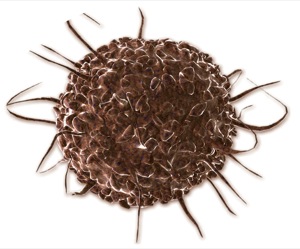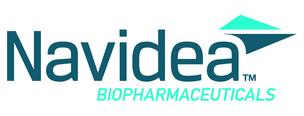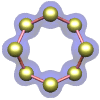Amgen has the second deepest pipeline of drugs of the three large cap biotechs. According to Amgen, they have 45 drugs in development from Phase 1 to Phase 3. Conversely, Gilead has 32 drugs in development and Pfizer has 64. Meanwhile, Gilead only has 8 drugs in Phase 3, Pfizer has 25, and Amgen has 14. 7 of those Phase 3 drugs are focused on cancer treatments for Amgen, more than either Pfizer or Gilead. Keep in mind that 12.4 million people learn they have cancer each year, while 7.6 million people lose that battle each year. The CDC predicts that the global number of cancer related deaths will increase by 80% by 2030. It doesn’t take a rocket scientist to know that cancer treating drugs presents the largest opportunity for any drug maker considering those statistics. Amgen has the inside track versus Gilead and Pfizer as far as quantity of drugs in late stage development.
Phase 1
AMG 110 is an anti-EpCAM (epithelial cell adhesion molecule) x anti-CD3 (BiTE®) bispecific antibody. It is being investigated as a cancer treatment.
AMG 139 is a human monoclonal antibody. It is being investigated as a treatment for Crohn’s disease. AMG 139 is being jointly developed in collaboration with AstraZeneca.
AMG 157 is a human monoclonal antibody that inhibits the action of thymic stromal lymphopoietin (TSLP). It is being investigated as a treatment for asthma. AMG 157 is being jointly developed in collaboration with AstraZeneca.
AMG 167 is a humanized monoclonal antibody that inhibits the action of sclerostin. AMG 167 is being developed in collaboration with UCB for bone-related conditions.
Other
Modality
Various cancer types
AMG 172 is a human anti-CD27L antibody drug conjugate. It is being investigated as a cancer treatment.
AMG 208 is a small molecule inhibitor of MET. It is being investigated as a cancer treatment.
AMG 232 is a small molecule. It is being investigated as a cancer treatment.
AMG 319 is a small molecule inhibitor of PI3 Kinase delta. It is being investigated as a cancer treatment.
AMG 334 is a human monoclonal antibody that inhibits the receptor for Calcitonin Gene-Related Peptide (CGRP). It is being investigated for the prevention of migraine.
AMG 337 is a small molecule inhibitor of MET. It is being investigated as a cancer treatment.
AMG 357 is a small molecule. It is being investigated as a treatment for autoimmune diseases.
Systemic lupus erythematosus
AMG 557 is a human monoclonal antibody that inhibits the action of B7 related protein (B7RP-1). It is being investigated as a treatment for systemic lupus erythematosus. AMG 557 is being jointly developed in collaboration with AstraZeneca.
Other
Modality
Glioblastoma
AMG 595 is a human anti-EGFRvIII (epidermal growth factor receptor) antibody drug conjugate. It is being investigated as a treatment for glioblastoma.
AMG 729 is a humanized monoclonal antibody that targets CD19 and CD32b to inhibit B cell. It is being investigated as a treatment for systemic lupus erythematosus and rheumatoid arthritis.
AMG 780 is a human anti-angiopoietin antibody that inhibits the interaction between the endothelial cell-selective Tie2 receptor and its ligands Ang1 and Ang2. It is being investigated as a cancer treatment.
Systemic lupus erythematosus
AMG 811 is a human monoclonal antibody that inhibits interferon gamma. It is being investigated as a treatment for systemic lupus erythematosus.
AMG 820 is a human monoclonal antibody that inhibits c-fms and decreases tumor associated macrophage (TAM) function. It is being investigated as a cancer treatment.
AMG 876 is a fusion protein. It is being investigated as a treatment for type 2 diabetes.
AMG 900 is a small molecule inhibitor of Aurora kinases A, B, and C. It is being investigated as a cancer treatment.
Phase 2
AMG 151 is a small molecule glucokinase activator. It is being investigated as a treatment for type 2 diabetes.
Inflammatory bowel disease
AMG 181 is a human monoclonal antibody that inhibits the action of alpha4/beta7. It is being investigated as a treatment for ulcerative colitis and Crohn’s disease. AMG 181 is being jointly developed in collaboration with AstraZeneca.
Other
Modality
Secondary hyperparathyroidism in patients with chronic kidney disease receiving dialysis
AMG 416 is a peptide agonist of the human cell surface calcium-sensing receptor (CaSR). It is being investigated as a treatment for secondary hyperparathyroidism in patients with chronic kidney disease receiving dialysis.
AMG 747 is a small molecule inhibitor of glycine transporter type-1 (GlyT-1). It is being investigated as a treatment for negative symptoms and cognitive deficits associated with schizophrenia.
Acute lymphoblastic leukemia
Blinatumumab is an anti-CD19 x anti-CD3 (BiTE®) bispecific antibody. It is being investigated as a cancer treatment.
Blinatumumab is an anti-CD19 x anti-CD3 (BiTE®) bispecific antibody. It is being investigated as a cancer treatment.
Brodalumab is a human monoclonal antibody that inhibits the interleukin-17 receptor. It is being investigated as a treatment for a variety of inflammatory diseases. Brodalumab is being jointly developed in collaboration with AstraZeneca.
Omecamtiv mecarbil is a small molecule activator of cardiac myosin. It is being investigated for the treatment of heart failure. We are developing this product in collaboration with Cytokinetics, Inc.
Denosumab is a human monoclonal antibody that specifically targets a ligand known as RANKL (that binds to a receptor known as RANK) which is a key mediator of osteoclast formation, function, and survival. It is being investigated across a range of conditions including osteoporosis, treatment-induced bone loss, rheumatoid arthritis and numerous tumor types across the spectrum of cancer-related bone diseases, including hypercalcemia of malignancy.
Trebananib is a peptibody that inhibits the interaction between the endothelial cell-selective Tie2 receptor and its ligands Ang1 and Ang2. It is being investigated as a cancer treatment.
Squamous cell head and neck cancer
Vectibix® is a human monoclonal antibody antagonist of the epidermal growth factor receptor (EGFr) pathway. It is being investigated as a cancer treatment.
Giant cell tumor of the bone
Denosumab is a human monoclonal antibody that specifically targets a ligand known as RANKL (that binds to a receptor known as RANK) which is a key mediator of osteoclast formation, function, and survival. It is being investigated across a range of conditions including osteoporosis, treatment-induced bone loss, rheumatoid arthritis and numerous tumor types across the spectrum of cancer-related bone diseases, including hypercalcemia of malignancy.
Hypercalcemia of malignancy
Denosumab is a human monoclonal antibody that specifically targets a ligand known as RANKL (that binds to a receptor known as RANK) which is a key mediator of osteoclast formation, function, and survival. It is being investigated across a range of conditions including osteoporosis, treatment-induced bone loss, rheumatoid arthritis and numerous tumor types across the spectrum of cancer-related bone diseases, including hypercalcemia of malignancy.
Phase 3
AMG 145 is a human monoclonal antibody that inhibits Proprotein Convertase Subtilisin/Kexin Type 9 (PCSK9). It is being investigated as a treatment for hyperlipidemia.
Myelodysplastic syndromes
Aranesp® is a recombinant human protein agonist of the erythropoietin receptor.
Brodalumab is a human monoclonal antibody that inhibits the interleukin-17 receptor. It is being investigated as a treatment for a variety of inflammatory diseases. Brodalumab is being jointly developed in collaboration with AstraZeneca.
Glucocorticoid-induced osteoporosis
Denosumab is a human monoclonal antibody that specifically targets a ligand known as RANKL (that binds to a receptor known as RANK) which is a key mediator of osteoclast formation, function, and survival. It is being investigated across a range of conditions including osteoporosis, treatment-induced bone loss, rheumatoid arthritis and numerous tumor types across the spectrum of cancer-related bone diseases, including hypercalcemia of malignancy.
Denosumab is a human monoclonal antibody that specifically targets a ligand known as RANKL (that binds to a receptor known as RANK) which is a key mediator of osteoclast formation, function, and survival. It is being investigated across a range of conditions including osteoporosis, treatment-induced bone loss, rheumatoid arthritis and numerous tumor types across the spectrum of cancer-related bone diseases, including hypercalcemia of malignancy.
Rilotumumab is a human monoclonal antibody that inhibits the action of hepatocyte growth factor/scatter factor. It is being investigated as a cancer treatment.
Postmenopausal osteoporosis
Romosozumab is a humanized monoclonal antibody that inhibits the action of sclerostin. It is being developed in collaboration with UCB for the treatment of postmenopausal osteoporosis.
Sensipar®/Mimpara® is an orally-administered small molecule that lowers parathyroid hormone (PTH) levels in blood by increasing sensitivity of the calcium-sensing receptor (CaSR) to extracellular calcium. It is being evaluated in post renal transplant patients.
Talimogene laherparepvec is an oncolytic immunotherapy derived from HSV-1. It is being investigated as a cancer treatment.
Trebananib is a peptibody that inhibits the interaction between the endothelial cell-selective Tie2 receptor and its ligands Ang1 and Ang2. It is being investigated as a cancer treatment.
First- and second-line colorectal cancer (U.S.)
Vectibix® is a human monoclonal antibody antagonist of the epidermal growth factor receptor (EGFr) pathway. It is being investigated as a cancer treatment.
Cancer-related bone damage (skeletal-related events) in patients with multiple myeloma
Denosumab is a human monoclonal antibody that specifically targets a ligand known as RANKL (that binds to a receptor known as RANK) which is a key mediator of osteoclast formation, function, and survival. It is being investigated across a range of conditions including osteoporosis, treatment-induced bone loss, rheumatoid arthritis and numerous tumor types across the spectrum of cancer-related bone diseases, including hypercalcemia of malignancy.
Delay or prevention of bone metastases in breast cancer
Denosumab is a human monoclonal antibody that specifically targets a ligand known as RANKL (that binds to a receptor known as RANK) which is a key mediator of osteoclast formation, function, and survival. It is being investigated across a range of conditions including osteoporosis, treatment-induced bone loss, rheumatoid arthritis and numerous tumor types across the spectrum of cancer-related bone diseases, including hypercalcemia of malignancy.
Delay or prevention of bone metastases in prostate cancer (EU)
Denosumab is a human monoclonal antibody that specifically targets a ligand known as RANKL (that binds to a receptor known as RANK) which is a key mediator of osteoclast formation, function, and survival. It is being investigated across a range of conditions including osteoporosis, treatment-induced bone loss, rheumatoid arthritis and numerous tumor types across the spectrum of cancer-related bone diseases, including hypercalcemia of malignancy.





















 NAV4694 is designed to aid visual detection and quantification of cerebral beta amyloid in diagnosing Alzheimer’s disease (AD). One hallmark of AD is the accumulation of beta amyloid plaques between nerve cells in the brain.
NAV4694 is designed to aid visual detection and quantification of cerebral beta amyloid in diagnosing Alzheimer’s disease (AD). One hallmark of AD is the accumulation of beta amyloid plaques between nerve cells in the brain.



 read all at
read all at

 PREDADENANT
PREDADENANT
